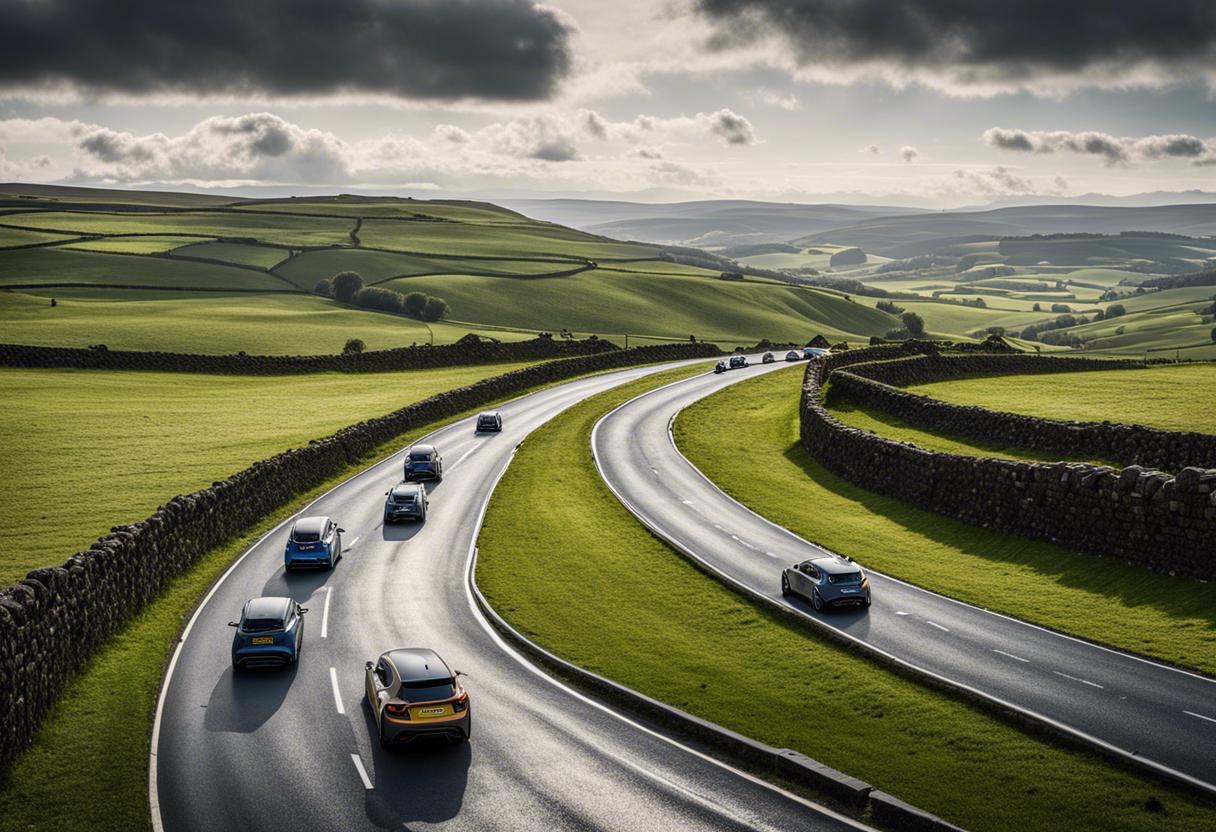In the initial quarter of the year, new electric vehicle sales were reduced by 14.2 per cent compared to the same period last year, despite an overall growth of 8 per cent in the new car market. The total new car registrations by the close of March escalated from 58,151 last year to 62,807 this year. Nonetheless, EV passenger car sales spiralled down to 7,971 from 9,297.
The contrast is stark. New petrol car sales have seen an increase of 14.8 per cent, regular hybrid sales have grown by 19.5 per cent, petrol/plug-in-hybrid (PHEV) registrations saw a 10.7 per cent boost, and even diesel sales have gone up by 9 per cent from last year. Petrol currently forms 33.4 per cent of the new car market, trailed by diesel at 23 per cent, hybrids at 22.77 per cent, electric at 12.7 per cent, and PHEVs at 8.1 per cent.
Brian Cooke, director general of the Society of the Irish Motor Industry (SIMI), remarked that the dip in EV sales emphasises the continuous struggle of shifting towards electric vehicles in the mainstream car market. He stated, “The move towards a greener fleet demands increased cooperation from all involved. This includes the automobile industry’s obligations to invest in and implement EV technology and the government’s responsibility to provide extended benefits including purchase grants and tax reliefs for companies, in addition to upgrading the national charging infrastructure with the help of private firms to enhance consumer confidence in electric vehicles.”
David Savage, vice-president for Ireland and the UK of fleet telematics company Geotabs pointed out, “There is no chance the Government will reach its 2030 goal of 945,000 electric vehicles on Irish roads. The 2025 target of 195,000 EVs heavily relies on rather dubious calculations by including vehicle types other than battery electric vehicles (BEVs) – the only real zero-emission vehicles on the roads. As of February, there were only 66,942 BEVs in circulation with current motor tax, accounting for a three to one disparity in favour of hybrids. These statistics underscore the strategic blunder of cutting grants for purchasing an EV.”
The government urgently needs to reassess its approach to the electric vehicle (EV) initiatives, by reinstating previous grant values and presenting additional incentives to invigorate the market. Possible incentives could include a buy-back scheme for older, highly pollutant cars, toll fee waivers for select EV owners, as well as subsidies for lower-income families, mainly because zero-emission vehicles are proving overly costly amidst the cost-of-living crisis.
The slump in EV sales coincides with a recent survey of 1,000 customers by AA Ireland, revealing that over half would not select an electric car as their next automobile. As Jennifer Kilduff from AA Ireland conveyed, misinformation and a lack of proper education are key factors impeding the transition to EVs.
Many are being misinformed about EVs, especially the functionality and lifespan of electric car batteries, affecting the second-hand EV market considerably. AA Ireland’s survey found that 53% of respondents thought that EV batteries would last less than 100,000km, which equates to approximately six years of driving. This is a misconception when compared to the eight-year and 160,000km warranties offered by numerous manufacturers.
Kilduff expressed her surprise at the general public’s misunderstanding of EV batteries. People seem to be perpetuating outdated myths about these modern batteries. These advanced batteries have developed management systems that extend their lifespan not only for years but potentially even decades. Post-usage in cars, batteries can serve in energy storage projects before eventually being recycled. Unlike popular belief, an EV battery comprises multiple modules rather than being a single piece of metal. If there is a problem, usually only the individual modules, not the entire battery, would need to be replaced, subsequently reducing costs.
The survey also determined that only half of the respondents trust that EVs are more environmentally friendly, whilst a mere 22% think the government’s promotion of EVs is adequate.
With a solid lead in hybrid vehicle sales, Toyota has emerged as the leading new car brand this year garnering 9,617 registrations. This places them ahead of brands such as Skoda with 6,821, VW garnering 5,974, Hyundai at 5,802, and Kia with 4,462 registrations. Even though the figures for new EV sales were down, Tesla saw an increase in registrations by 23 percent from last year, securing the 17th position in the market with 834 registrations.
The Hyundai Tucson is the most purchased model in the Irish new car market, boasting 2,805 registrations; followed by the Skoda Octavia with 2,476, Kia’s Sportage at 2,127, and Toyota’s Rav4 selling 1,923 units.
Zoe Bradley, who leads the marketing communications at Toyota Ireland, expressed that even though diesel remains a popular and familiar choice for drivers, a growing number of Irish motorists are showing an interest in more environmentally friendly options like hybrid vehicles. These options promise an immediate reduction in CO2 and NOX emissions when compared to diesel or petrol models, without sacrificing power and performance.
On the commercial front, which often indicates economic progress, sales of vans have seen a notable increase of 34.1 per cent from last year, with 15,356 registrations. Heavy Goods Vehicle (HGV) registrations rose by 21.1 per cent, with 1,333 registrations recorded.

